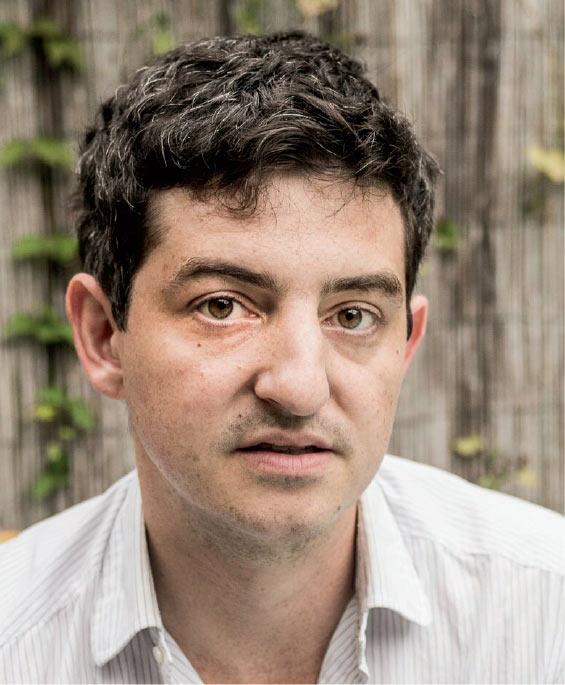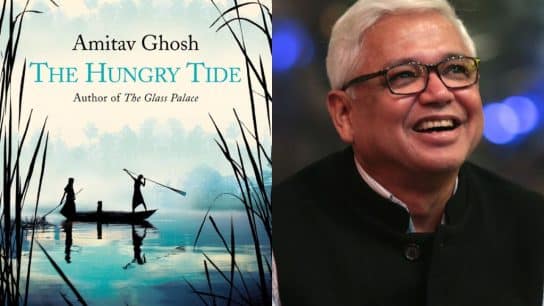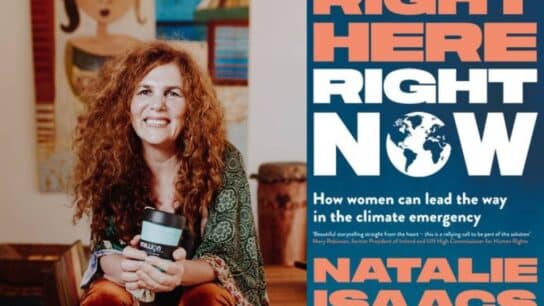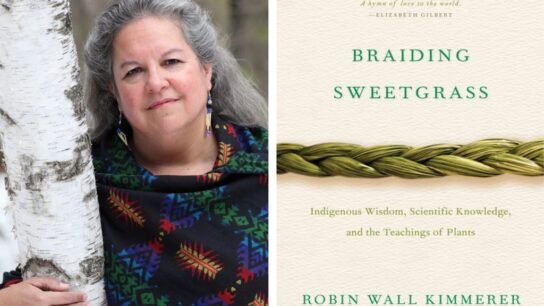It is easy to believe that the world we see is natural, and even easier to forget that human beings have for millennia been customising and transforming it to suit our desires, indulging in eras of agriculture and industrialisation while wallowing in the successes of capitalism. The sheer amount of resources we need to extract to satisfy our needs, our longings and desires, and the continuous growth of the world population is overtaxing nature’s capacities. Over and over again, humans have altered and capitalised upon what was, and created a new concept of it, becoming the master and engineer of the natural world or rather, of the artificial natural world. In his latest book, Second Nature, Nathaniel Rich presents the results of our activities as an emergence of a secondary and new nature, deftly exploring the ethics and ramifications of humanity’s evolving relationship with nature.
—
Through difficult stories, Nathaniel asks hard questions: can we reverse the damages we have made? Or create a world anew, one more sustainable for the future? In a narration of ten scenes from New Orleans to Aspen, from the immortal jellyfish to green rabbits, Nathaniel illustrates the man-made alteration of natural ecosystems and biodiversity and its consequences; somewhat scenes of dystopia. He discusses our responsibilities, and evaluates scientific breakthroughs that could just as easily reverse the harm we inflicted in the past as they could create an alternative and unrecognisable imitation of nature in the future.
Technological procedures such as de-extinction by genetic engineering and mixing molecular gastronomy are presented as alternatives to the dark path of ecological destruction. A common theme surrounding environmentalists is a constant wariness towards new technology, given their potential to breed complacency among us humans when we need to be aggressively reducing our impacts on the natural world. But Nathaniel is more realistic. “We are decades past the point of not having to worry about doing these massive interventions, we are at the point where there have to be major technological interventions. The question is not so much ‘do we try them or not,’ it’s ‘how do we do so responsibly,’” Nathaniel told Earth.Org in a recent interview.
The book opens with the presentation of crime scenes caused by human encroachment upon nature, such as the literal wasting away of star fish due to warming oceans, CO2 water acidification and pollution of natural habitats. Nathaniel highlights how legal and jurisdictional frameworks have suddenly become disputable, and questions whether these institutions are really able to adequately govern people as well as the planet. He gives his insights into the atrocities that humanity’s perceived justified owning of nature causes: fear, oblivion, corruption, suffering and injustice.
The nature we coexist with is rapidly becoming a perversion of itself, and nature is fighting back. In one chapter, the New Orleans resident discusses the aftermath of Hurricane Katrina, an instance of ‘reverse colonisation’ where wilderness has begun to replace people’s homes. At the same time, a luxury ski resort in Aspen, Colorado is suddenly lacking snow due to warmer temperatures, while holiday guests’ dogs continue to be flown to privileged lodges by private jet.
In the third and final part of the book, human impact is suddenly presented as a net-positive, through initiatives that could ultimately protect and save nature. Humans here begin to implement godlike changes to nature, such as resurrecting passenger pigeons and mixing genes of different species all so that we may fantasise about a restored nature, in which love and care for it are essential.
You might also like: Book Review: The Citizen’s Guide to Climate Success by Mark Jaccard
Nathaniel’s book sheds light on the truth and reality of a complex ethical battle between nature and humans and pinpoints the difficulties in the justification of human action towards nature. Is it ethically justifiable that millions be spent on the imitation of nature that we have destroyed, or that we employ biotechnology to revitalise a species already declared extinct, and introduce it to an ecosystem that has changed immensely since it last walked the Earth? Do we deserve to shake off our guilt by resurrecting species we contributed to killing in the past? Is all this manipulation just us frantically searching for some redemption?
Second Nature offers a deep and intimate insight due to an empathic narrative that highlights the passion of individuals who are fighting for ecological justice whilst brutally showing us the ignorance of man. How is it possible to achieve a balance, where we can provide for the necessities of our species while also protecting the natural world and its precious habitat?
Nathaniel maintains a perspective that seems to be without judgement or resentment. The language he uses seems far more driven to resolve, by his choice in stories and their protagonists who operate as heroes in the quest to stop climate change progression. A natural novelist and essayist, Nathaniel’s command of language is evident, and the importance of highlighting humanity’s relationship with nature through the medium of literature is not lost on him. “There is value in art and literature, to help us think more clearly about these issues, and the ways in which they relate to our personal lives. That’s why I’ve chosen to tell the stories in the way that I tell them; through immersive, third-person storytelling,” Nathaniel told us.
In one of Second Nature’s fascinating tales, scientists and artists cooperate to show how biotechnology can create rabbits who literally glow in the dark, and here the complexity of the relationship between man and nature is made visible, connecting it furthermore to realms such as art and culture and their profitability. Whether humans will in the future eat meat without killing a single animal, whether land will disappear into the oceans, and whether humans will one day become immortal; these questions are introduced poetically, and left open for exploration.
For more, watch Nathaniel speak to Earth.Org founder Constant Tedder in a fascinating 90-minute conversation here.
Second Nature: Scenes from a World Remade
Nathaniel Rich
2021, MCDxFSG Books, 304pp

















